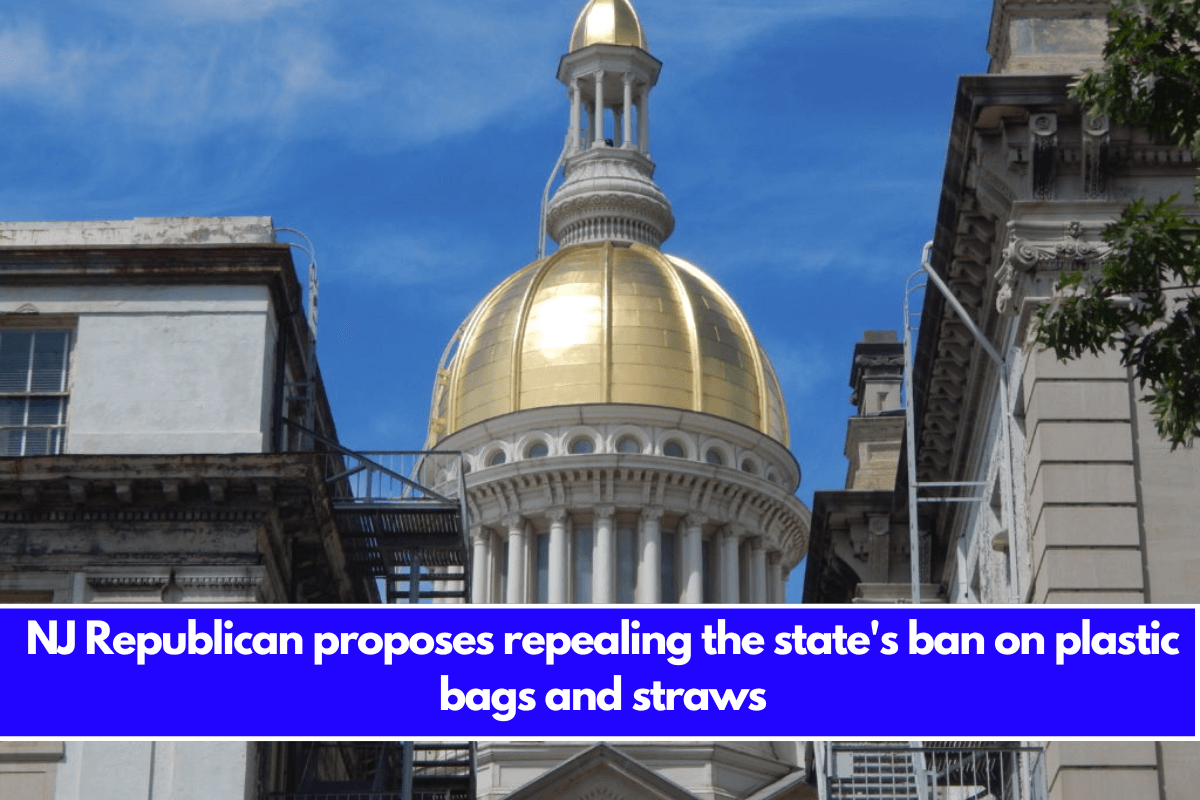Bergen County Assemblyman John Azzariti Jr. is the first to introduce legislation to repeal the state’s 2020 ban on single-use plastics and paper bags. The bill follows President Donald Trump’s executive order to reinstate plastic straws and studies showing that reusable bags increased waste in New Jersey.”New Jersey
implemented the most restrictive ban on single-use plastics, Styrofoam and paper carryout bags to much left-wing fanfare, but the unintended consequences of the law are starting to negate any environmental benefits,” said Representative Azzariti (R-Bergen). “Just because your intuition tells you something is going to be true, science can prove you wrong.”
According to a study published last year by the Freedonia Group, New Jersey’s anti-plastics law has resulted in a near tripling of plastic consumption. Consumers are forced to buy reusable bags made with 15 to 20 times the amount of plastic used in single-use plastic bags, which are now banned. They are also frequently discarded or forgotten after only a few uses.
In 1995, a person in New Jersey disposed of 11.83 pounds of waste per day. That number increased to around 13 pounds in 2021, when single-use plastics began to be phased out.
Following the implementation of the plastic bag ban, New Jersey’s 9 million residents began to accumulate massive amounts of woven and reusable bags. It became so overwhelming that these bags ended up in the trash because they are not recyclable or biodegradable,” Azzariti explained.
“There’s been no consensus on if the ban has worked, and in fact, there’s only evidence to suggest that prohibiting single-use plastics may even have the opposite effect.”
According to Environmental and Resource Economics, restrictions on plastic grocery bags resulted in increased purchases of plastic garbage bags. Each store purchased more than 120 pounds of plastic per month.
Alternative shopping bags made of non-woven polypropylene use over 15 times more plastic and emit more than five times as much greenhouse gas during production as traditional plastic bags. As a result, these bags leave a significantly larger carbon footprint.
“My legislation isn’t only about being inconvenienced or disliking paper straws, although I think most people would generally agree with those two sentiments, it’s about looking at the broader impact of heavy-handed government mandates,” Azzariti told the audience. “Just because the government declares something ‘bad’ for the environment, doesn’t mean it should be outlawed.”
A 2023 study by Belgian researchers discovered that some paper and bamboo straws contain more PFAS, or “forever chemicals,” than plastic straws. Exposure to PFAS is associated with an increased risk of certain cancers. Even environmentalists have admitted to discovering toxic dyes and glues in paper straws while testing.
Trump’s order, signed on February 10, directs federal agencies to stop purchasing paper straws. The federal government purchases more straws than any other organization in the country.
Azzariti’s bill (A5338) repeals New Jersey’s 2020 law that banned single-use plastic bags and straws, paper carryout bags, and Styrofoam to-go containers.
“I think there are ways to reduce pollution, encourage recycling and be more environmentally-friendly without forcing residents to accept a flawed solution,” Azzariti told reporters.
